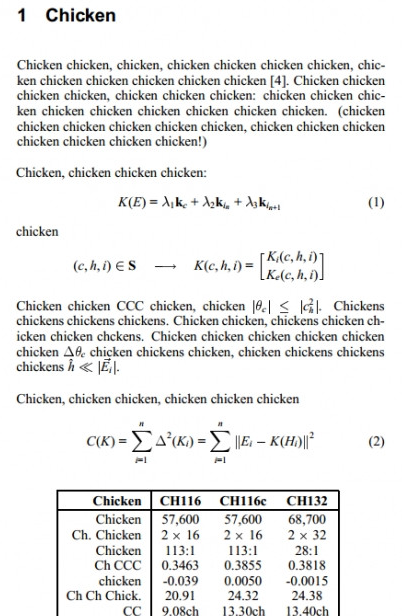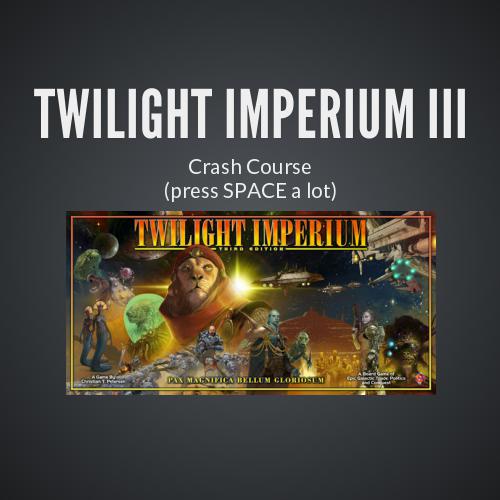programming
with C#
GOALS
Expand the tools you have available to you
Computational Thinking (Writing)
Understanding Code (Reading)
Capabilities and Limitations
Mapping Problems into Computational Framework
WHAT IS PROGRAMMING
Thinking like a computer scientist
Making a computer do what you want
An instinct to solve technical problems
Thinking like a computer scientist
Problem Solving
Not Memorization
Computational Mode of Thought
what is...
A computational mode of thought?
Computation?
(Mechanism vs. Thinking)
(Mechanism vs. Thinking)
Knowledge?
wHAT IS... KNOWLEDGE
Declarative
Imperative
√x is y such that y² equals x
Guess G
if G is close to x → G
repeat with
(G + X/G)/2
computational thought!
Build a machine to do it
Fixed Program
fixed program
Atanasoff - 1941
(Linear Equations)
(Linear Equations)
Turing Bombe - 1940s
(Cracking Enigma Codes)
(Cracking Enigma Codes)
Pocket Calculator
ASICs
(Bitcoin mining)
(Bitcoin mining)
an improvement
Build a machine to do it ALL
Stored Program
stored program computer
memory: { Instr1, Instr2, Instr3, Instr4 }
PC
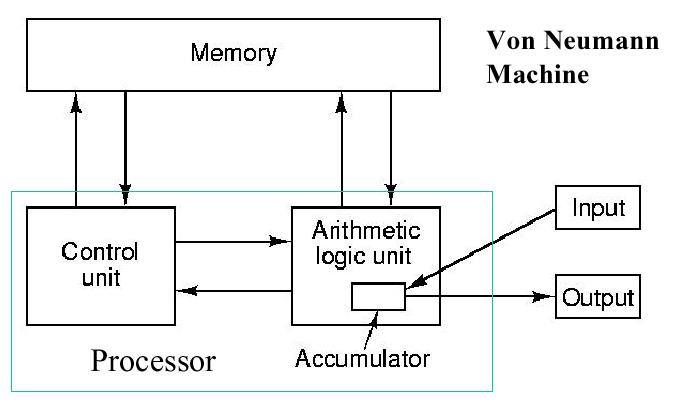
takeaway
Instructions. Recipe. Imperatives.
Composed of Simple Primitives
Just Six Primitives
-- Turing (1936)
programming languages
Turing Completeness
Super-Primitive
babylonian roots in X86
fild [eax] ; put epsilon on stack fild [ebx] ; put x on top of stack fild [ecx] ; put guess (y_0) on top of stack test: fld st(0) ; copy y_i on top of stack again, so that: fmul ; st(0) := y_i ^ 2 fsub st(2) ; st(0) := y_i ^ 2 - x fabs ; fcomp st(3) ; if st(0) < epsilon jc done ; jump to done improve: fld st(0) ; copy y_i fdivr st(2) st(0) ; st(0) := x / y_i fadd ; st(0) := y_i + (x/y_i) fld1 fld1 fadd ; push 2 onto stack fdivr st(1) st(0) ; st(0) := (y_i + (x/y_i))/2 jmp test done: fistp [eax] ; return result fstp st(0) fstp st(0) fstp st(0) ; cleanup
in other words...
babylonian roots in C#
float FindBabylonianSqRoot( float x, float epsilon, float initial = 0 ) {
var guess = Math.Abs(initial);
while( epsilon < Math.Abs(x - guess * guess) ) {
guess = ((x / guess) + guess) / 2.0f;
}
return guess;
}
differences in languages
All equally capable, sort of
Wildly different paradigms
(ways of thinking)
high level vs. low level
general vs. targeted
interpreted vs. compiled
C#
Procedural, Object-Oriented
high level vs. low level
general vs. targeted
interpreted vs. compiled
what makes up a language
Syntax
Semantics
Language ecosystem
Libraries
Tools
Resources
a look at c#
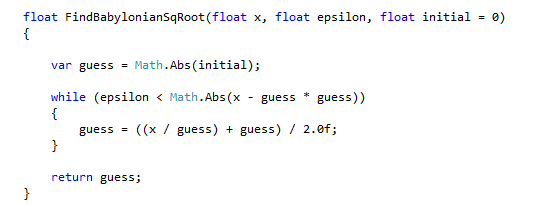
functions
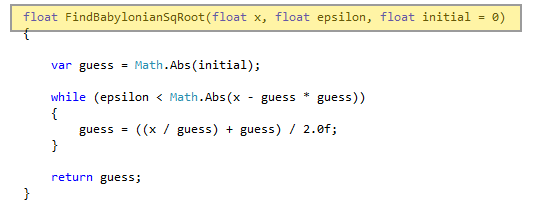
actually, ... procedures!
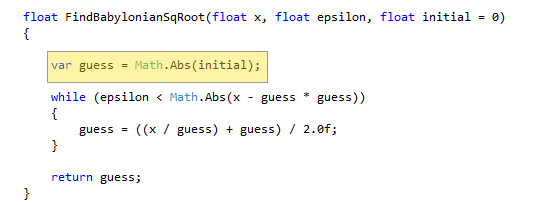
inputs and outputs
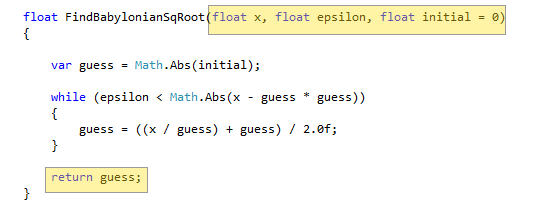
variables
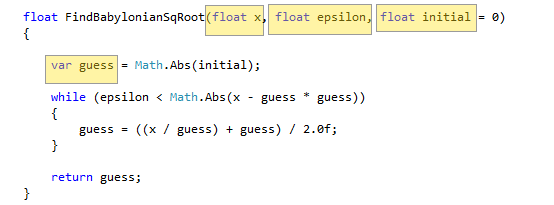
operators
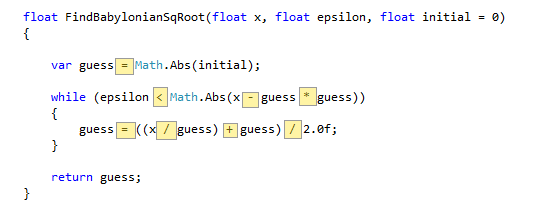
flow control
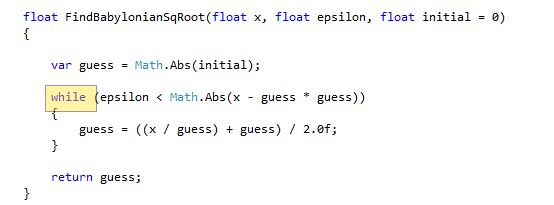
standard library
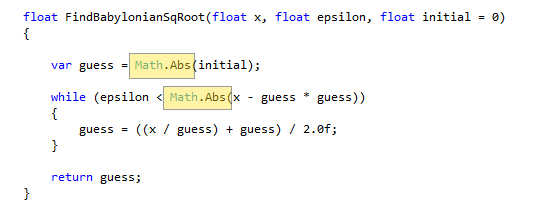
demonstration
(Visual Studio 2012 Express)
First Slide
By Clayton Hughes
First Slide
- 143
